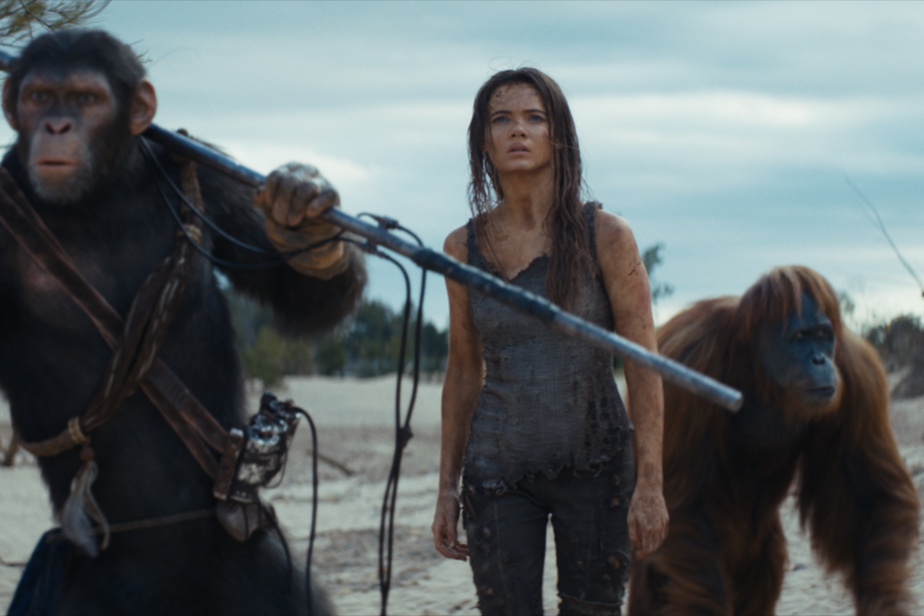The Planet of the Apes universe has existed since the 1960s. The novel, Planet of the Apes, by Pierre Boulle, was published in 1963 and then the film by Franklin J. Schaffner was released five years later. We understand if fans feel offended by the comparison of the last part with the – recent – creation of James Cameron.
The similarities between Kingdom of the Planet of the Apes and Avatar are undeniable, however. This is possibly explained by the presence of screenwriter Josh Friedman (War of the Worlds) in the credits. In addition to having collaborated on the writing of Avatar: The Way of Water, he is working on the third and fourth parts.
The similarities aren’t limited to the plot. Thanks to masterful special effects, we believe in these apes capable of speech and high-flying physical prowess with the same credulity as for the Na’vi. The emotion conveyed by their gaze is particularly impressive. The environments are also breathtakingly realistic. Like James Cameron, Wes Ball (the Maze Runner film series) filmed on location in Australia rather than in a studio. The contribution of cinematographer Gyula Pados deserves to be highlighted.
A good part of the two hours and twenty-five minutes shows how primates live, 300 years after the simian revolution led by the chimpanzee Caesar (Andy Serkis) in the previous trilogy. We deduce that his message of unity was hijacked by some or was simply not transmitted to others.
This is the case of Noa (Owen Teague, Bloodline) from the eagle clan, who domesticates birds of prey. The peaceful life of his small village is destroyed when soldiers of King Proximus Caesar (Kevin Durand, The Strain) arrive, looking for a human woman (Freya Allan, The Witcher). Noa’s family and loved ones are kidnapped or killed, but he manages to escape. On the road to reunite with his family, he meets Raka (Peter Macon, The Orville), a friendly orangutan who will teach him the dogmas of Ceasar. The pair will also reunite with the human, who will lead them to the kingdom of Proximus, where various clans live in fear.
Humans are no longer the main rivals of the apes since the virus created by man which allowed the latter to develop the ability to speak made him lose his at the same time. The role of Freya Allan is important, but we find it refreshing that the place of men in the story is reduced.
Although they are referenced, it is not necessary to have seen the previous three films to understand the essence of this new chapter. Fans of the 1968 original will be delighted with the few nods. Two other feature films are planned. We hope that they come to fruition, because, alone, Kingdom does not reach the intensity of those made by Rupert Wyatt then Matt Reeves. Besides its short length and a somewhat generic antagonist, its only fault is limited stakes. However, if it is indeed a new entry into the matter, it is frankly successful.


















